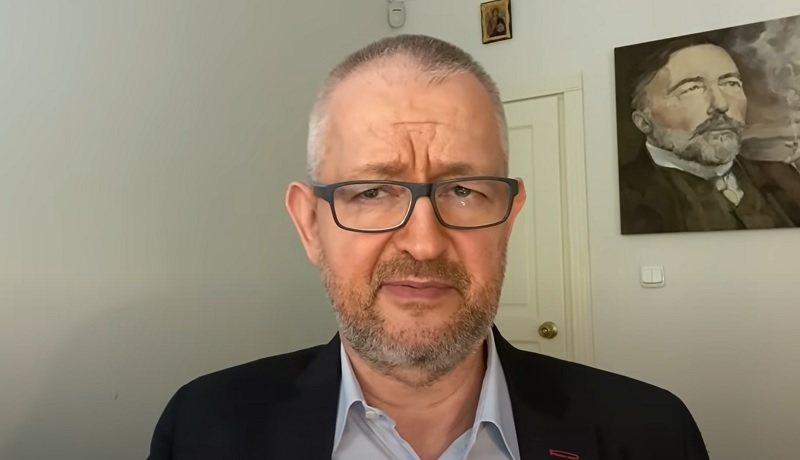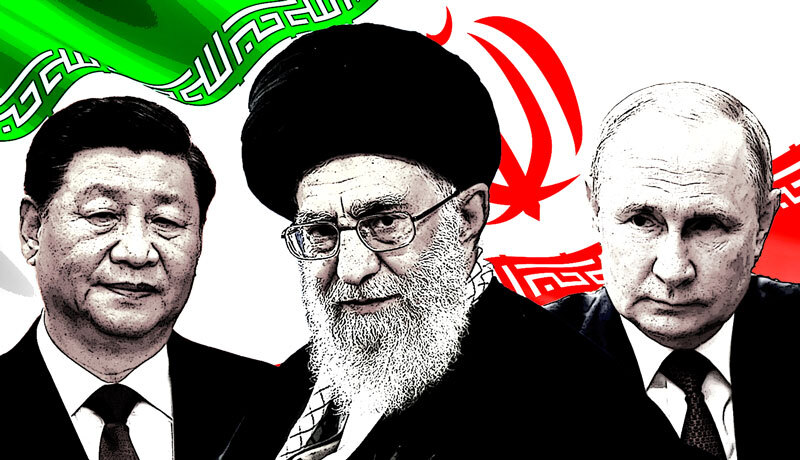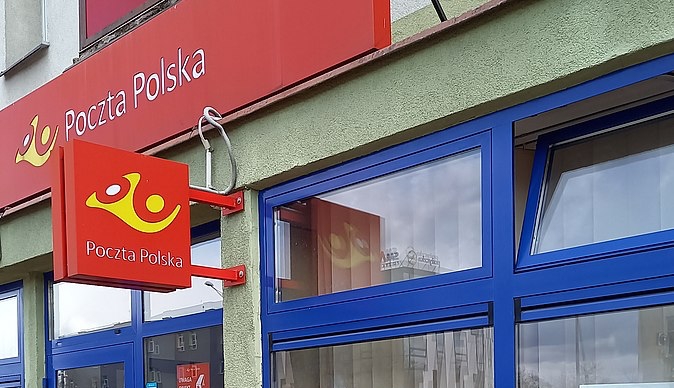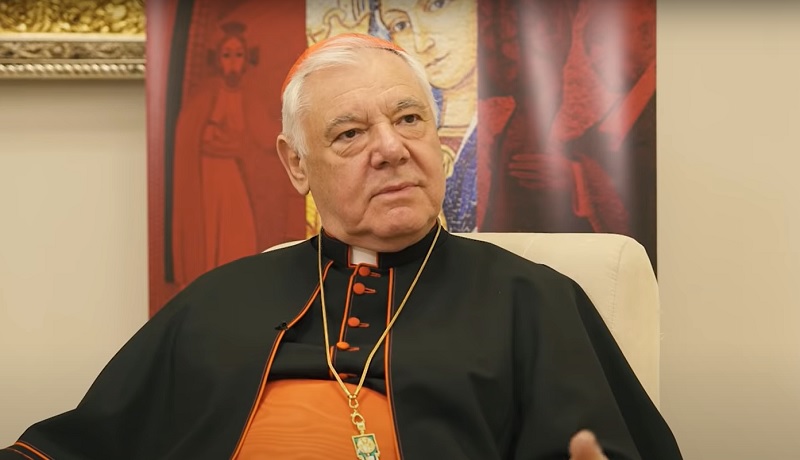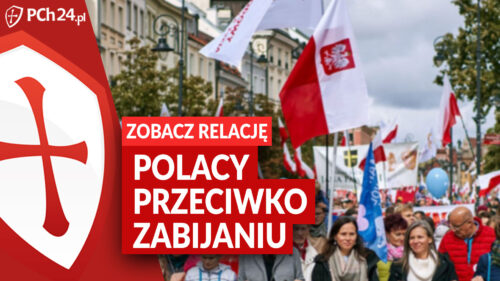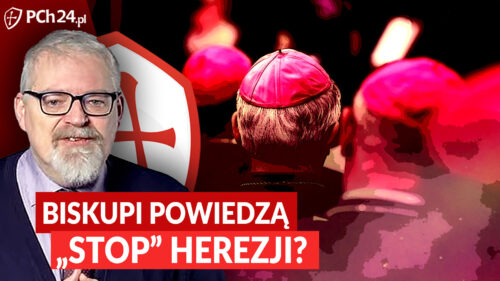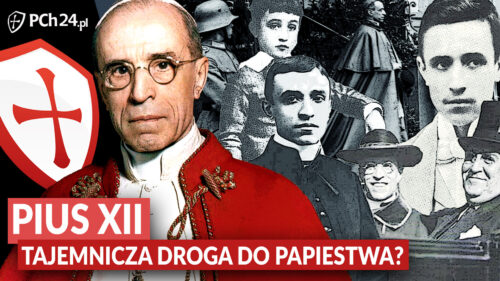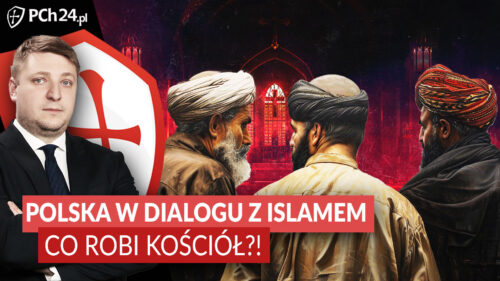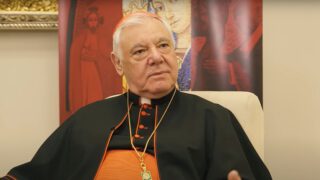The concepts of integral ecology” and “integral human development” resulting from “integral humanism” and the issue of social justice related to them are the key to understanding the post-Vatican II teaching of the Church and its incredible political involvement.
At the end of June 2018, Peruvian archbishop Pedro Barreto, called a “prophet of integral ecology” by Mauricio López, Executive Secretary of REPAM, the Pan-Amazonian Ecclesial Network, will be appointed Cardinal by Pope Francis. He became this prophet even before the publication of Francis’s second encyclical Laudato si, calling for “listening to the peoples’ shout”.
Wesprzyj nas już teraz!
Integral ecology is characterised as a “new paradigm of ecological theory and practice”, an “integrated approach to ecology” (crossing the borders between human, social and biophysical sciences) aimed at the comprehensive understanding of and reaction to the intermingling of nature, culture and “ecological awareness”. Finally, it is a new “paradigm of justice” – “social justice” that has long been fought for by Marxists, who tried to build paradise on earth.
This term was used for the first time in 1995 by Boff and Elizondo – priests and advocates of the theology of liberation: The latter was accused of sexual harassment and committed suicide in 2016 (during the Jubilee of Mercy).
The authors of the new ethical system try to derive its sources from Aristotle, but the key period for its development was the turn of the 20th century, particularly the thought of biologists Ernst Haeckl and Charles Darwin and subsequently Aldo Leopold – an American forester who regarded the Earth as a “living creature” that has “at least the same rights as humans do”.
He inspired Rachel Carson to write Silent Spring in 1962. This book initiated a series of publications promoting the ideology of sustainable growth. Its primary goal is undoubtedly to limit the world population so as not to harm the environment and establish control over global resources that is exercised on behalf of the wealthiest philanthropists through international institutions.
Leopold thought that ethics evolved from interpersonal relations to relations with the entire world of nature, eventually becoming an ethic of a “great community of life”, in which human rights are equal to rights of other “creatures”.
To him, “integral ecology” means the dynamic integration process that encompasses not only the sphere of biology, but also the development of human morality. The human being is no longer supposed to be a conqueror subjugating the Earth, but an ordinary member of the “great community of life”.
Another important figure is Edgar Morin – a French theoretician of complexity who postulates “evolution towards planetary awareness and planetary solidarity”. Another person who should be mentioned here is Rev. Thomas Berry – an eco-theologian who thinks that all human efforts should be aimed at protecting the Earth against the exhaustion of its resources as a result of human activities. Therefore, each of us should take care of the “health of the planet”. In his view, the human being must concentrate not on his own salvation, but on “building bonds with others”. “The reality of Christ is a ‘communion’ between various levels of reality – cosmic, social and personal,” he wrote. He ascribed certain “spirituality” with which we allegedly should be united (pantheism) to nature.
Another important figure of this movement is Ken Wilber – the author of the integral theory who is said to be trying to create a synthesis of all possible “paradigms”. He refers to integral awareness, integral spirituality, etc.
Finally, it is worth mentioning other creators of “integral ecology”: Michael Zimmerman and Esbjörn-Hargens. Both of them used the integral theory in their research on the environment and ecology…
The concept of integral ecology from the perspective of the Church
The concept of integral ecology is explained by Rev. John Conley, an American Jesuit, in the America Magazine. The priest stresses that the concept of integral ecology is broadly used in modern circles of ecologists, but the meaning of this term is often vague.
Some scientists regard integral ecology as a field of multidisciplinary studies of environmental entities. Some economists use this expression to emphasise that environmental issues cannot be separated from issues of production and consumption. And certain philosophers perceive integral ecology as a new form of naturalism.
“This term has also a characteristic Catholic meaning,” writes the priest, recalling Pope Paul VI’s Populorum progressio – incidentally, it is also the favourite encyclical of Professor Jeffrey Sachs, a promoter of Agenda 30 and depopulation. Populorum progressio was published in 1967 and refers to the integral development of the human being.
In the context of this encyclical, the priest referred to deeper inspirations and the thought of the French theologian and philosopher Jacques Maritain and his “integral humanism”, which assumes the stronger political involvement of Catholics and their co-operation with secular humanists (atheists) in the promotion of “civic democracy”.
According to Conley, these various conceptions of integral ecology, excluding the naturalistic one, clearly influenced the content of Francis’s encyclical Laudato si, which suggests that environmental and economic problems are inseparable and the aim of the human being is to create the most perfect economic system on earth to allow “human dignity” to increase. The question of salvation seems to be put aside.
Maritain – an “open Thomist”, Paul VI’s authority
Maritain’s thought undoubtedly played a huge role in the formation of the entire Vatican II and post-Vatican II teaching of the Church. His “Christian personalism”, which is also the foundation of the conception of human dignity, is outlined in works such as: Integral Humanism and Three Reformers, translated by Paul VI, who regarded himself as the follower of the French philosopher.
Maritain elaborated and participated in the adoption of the Universal Declaration of Human Rights. This “Christian rationalist” was a Thomist open to various philosophical streams. He thought that the freedom of choice is an attribute of the human person and the fundamental right of social life. “The human being has the freedom of choice in order to reach … the freedom of autonomy, ultimate freedom”.
The “freedom of autonomy” is the skill of self-direction. According to Maritain’s thought, the human being strives for two absolutely ultimate goals. The first of them is a purely natural goal: ideal prosperity on earth, and the second, supernatural one is ideal happiness in heaven.
The thinker created the idea of “personalistic democracy”, which is based on the full political and social involvement of the individual, freedom, equality, fraternity, the pluralism of views, and community action for the common good.
How did Maritain want to reconcile opposite views in order to develop co-operation in society? Through “secular democratic faith”. The freedom of conscience will be guaranteed to all citizens and it is necessary to find certain common “values” around which their activity will be focused.
Works aimed at finding such “values” were undertaken, for example, by a group of 15 experts nominated by the U.S. President John F. Kennedy in the 1960s. They looked for a substitute for war in order to maintain social order in the “golden era of peace”. They postulated, among others, the establishment of global police forces, the introduction of modern forms of slavery, the popularisation of eugenics, euthanasia, prosperity and new quasi-religious myths, focusing on environmental protection as one of the priorities, the creation of numerous governmental mechanisms of control and subsidisation that would make individuals dependent on governments. In their main study, they stated that environmental hazards are the issue that can be used most effectively in mass manipulation (The Report from Iron Mountain).
The aforementioned Maritain, the forerunner of the Second Vatican Council (Vatican II), whose inspirations are visible in two crucial documents of the Council: the Pastoral Constitution on the Church in the Modern World (Gaudium et spes) and the Declaration on Religious Freedom (Dignitatis humanae), had emphasised already in the 1930s that the state should respect the freedom of conscience and religion and promote the attitude of tolerance.
According to the philosopher, the model of the medieval Christianitas has become outdated. The “pluralism of world-views” requires the separation of Church and state. A secular state should have autonomy in the implementation of relevant tasks, i.e., the provision of fair living conditions to citizens. It is also obliged to respect the freedom of conscience and religion.
The French “open Thomist” admitted that both the Church and the state should co-operate for the benefit of the human person with regard to education, the creation of culture, the promotion of moral values, the prevention of pathologies and the protection of family.
Maritain inspired many politicians associated with Christian democracy, who took actions for the benefit of European integration. They believed that the future of the world lay in “pluralistic democracies” based on “consensus” regarding natural law, which was only partly inspired by the Christian understanding of the individual. Peace between such democracies would be supported by economic and social interdependence and the “overcoming of barriers”.
“Pluralistic democracy” and Populorum progressio
Personalistic democracy is currently an ideal promoted by the Church. Its implementation is strongly supported by hierarchs and “open Catholics”, who want to combine Catholicism with modernity and religious activity with political involvement.
In the opinion of Maritain, the road to new social order led through “liberation” from “anachronous ideas of truly Christian forms of political institutions” and the method of combining them with the teaching of the Gospel. This required a radical revaluation of the way of understanding the relationship between religion and the Church and the state and politics that had prevailed in the Church for many centuries. Maritain advocated the steady adaptation of Christianity to the changing “historical requirements”, because, in his view, the lack of such adaptation led to various crises.
The need to replace the conception of ideologically uniform medieval sacred society (sacrum imperium) with the ideal of pluralistic democratic society because of the change of the Renaissance climate from sacred to secular was the main thesis of “integral humanism”, to which Paul VI referred in his encyclical Populorum progressio.
According to Maritain, Christians are always responsible for a certain way of understanding and applying the teachings of Christ and for the manner of solving political and social problems in their epoch.
In the philosopher’s opinion, the replacement of the “conflict-prone” ideal of medieval sacrum christianitas with pluralistic personalistic democracy would bring progress and functional solutions in the life of societies, which would ensure transition to a higher stage in the development of humanity.
In addition, this further higher stage of development for integral ecologists is “sustainable society”, which is engaged in the protection of all creatures to an equal extent. It is a society whose members resign from consumptionism and “reproduction” for the common good of Mother Earth.
Professor Jeffrey Sachs, who is a regular guest of Vatican conferences and regularly meets Cardinal Pietro Parolin, the Vatican Secretary of State, is also the author and co-author of declarations of UN and Vatican institutes, or even a co-author of Pope Francis’s encyclical Laudato si, often quotes during his lectures a fragment of Populorum progressio (1967) concerning the support of the development of peoples.
The aforementioned encyclical is devoted to the issues of development, progress, humanism, the problem of poor states, the civilisational gap between countries of the North and South, the world government, etc. It forms a key to understanding the teaching of the Church on the “integral” human development and to understanding the current involvement of the Holy See in the sustainable growth agenda.
Benedict XVI influenced by globalists
Integral development was written about by John Paul II, Benedict XVI and Francis.
On 8 July 2009, Benedict XVI delivered a catechesis in the Vatican on the driving force of development. He presented his encyclical Caritas in veritate there.
Benedict XVI reiterated that Paul VI’s Populorum progressio is a milestone of the social teaching of the Church, where “this great Pope determines certain, concrete and still valid lines for the integral development of the human being and the modern world”.
Pope Emeritus referred, among others, to the “scandal” of huge inequalities, the reform of capitalism, new ethics, new lifestyle, obligations towards society, etc. “Thus, in the desire to have a development program that is not flawed by the dysfunctions and distortions that are widespread today, everyone is called on to reflect seriously on the sense of the economy itself and its goals. This is demanded by the ecological state of the planet; it is demanded by the cultural and moral crisis of mankind which is evident in every part of the globe,” he wrote.
Benedict XVI mentioned also the need for ecumenism and called for the provision of “appropriate framework for incentivizing collaboration among believers and non-believers in the shared prospect of working for justice and peace in the world” in the spirit of solidarity and subsidiarity. In addition, he indicated the “need for a global political authority” that would solve global problems (that is a post-Vatican II novum) in accordance with the principles of solidarity and subsidiarity.
Benedict XVI “goes with the flow” of trends and discussions being held since the 1950s and aimed at the reform of capitalism, the creation of new economic order, the bridging of development gaps between the rich and the poor, while indicating the need for the integral physical and spiritual development of the human being. The spiritual aspect in the Pope’s interpretation obviously encompasses faith in one God instead of pantheism postulated by “deep ecology”.
The Church is aware of global challenges and, just like Rockefellers or Sachs, is looking for a “third road”. For Professor Sachs, the third road is the program of social democracy (as he puts it himself). The vision of the Church is slightly different. Acknowledging the urgent need to solve global problems via international organisations, the Church calls for the ethical and moral conduct of decision-makers and the use of the principle of subsidiarity. This principle can be summarised with a high degree of simplification as follows: it allows a state to intervene, particularly if this intervention is necessary. The main principle is to leave freedom and autonomy wherever possible without harm to others.
In practice, however, revolutionists implement their goals in accordance with their own vision, and key decisions in the Vatican are currently made by priests fascinated with Marxixm.
As we know very well, Francis is implementing the goals of Agenda 30 and the ideologically related Earth Charter inspired by Maritain’s ideas and elaborated to a large extent by Maurice Strong, Rockefellers, Gorbachev and Marxists of various sorts. The ideal of the Charter is to fight against every form of discrimination, including “sexual orientation”, and to fight for “reproductive rights of women”.
Integral ecology in Laudato si
The fourth chapter of Francis’s encyclical Laudato si is devoted to integral ecology. How does Francis understand it? As focusing not as much on the salvation of the human being as on building prosperity to an equal extent for all people in the world and on the equal division of income. Although the Pope mentions the need to protect human life, thus detaching himself from secular representatives of “deep ecology”, this postulate is rendered less significant in the context of other challenges.
In Laudato si, Pope Francis argues that currently “we are faced not with two separate crises, one environmental and the other social, but rather with one complex crisis which is both social and environmental”. In order to solve this crisis, it is necessary to adopt “an integrated approach to combating poverty, restoring dignity to the excluded, and at the same time protecting nature”.
Consciously or unconsciously, the Pope assumes the terminology of international organisations, indicating that, in order to speak of real development, it is necessary to ensure whether an integral improvement of the quality of human life occurs.
Making an appeal for “solidarity” and a “preferential option for the poorest” for the purpose of fulfilment of the “common good”, Francis remarks that this option demands “before all else an appreciation of the immense dignity of the poor in the light of our deepest convictions as believers”. The Pope writes that today “this option is in fact an ethical imperative essential for effectively attaining the common good”.
The ideal is “sustainable growth”, but it cannot be accomplished without generational and intragenerational justice. The Pope highlights the importance of “social justice”. Francis seems to move the gravity point of the teaching of the Church from supernatural and sacramental activity to non-sacramental.
He assumes that the Church is not only able, but even obliged to engage in secular activity, e.g., by promoting the theory of global warming (which is very questionable after all), recycling, electromobility, new taxes etc. that are not necessary for salvation but are apparently aimed at helping to bring prosperity to everyone.
With a view to liberating the human being from political and economic oppression, the Pope advocates an “ecological conversion”. Cardinal Turkson, who is one of the key architects of Laudato si and the Prefect of the Dicastery for Promoting Integral Human Development, thinks that the term “integral ecology” encompasses: the call to all peoples to be protectors of the environment, care for creation as a virtue in its own right, and a new global solidarity as a key value to direct our search for the common good.
Thus, integral ecology means that ecological integrity and social justice are interrelated, because humans and nature form a part of interdependent systems of life. Taking account of the fact that the weak and the sensitive are affected most strongly by the sick planetary system, these two issues must be considered together.
We can, therefore, see a clear shift of the gravity point of the activity and teaching of the Church. What counts most, is no longer the social rule of Jesus Christ and liberation from sin, but the reduction of external oppression.
The Church should not try to build paradise on earth and focus on fighting poverty, because it will be used by Marxist utopists. The biggest oppression is the “law” of sin that rules in our hearts. The reduction of external oppression, if it is not supported by an internal transformation, only leads to a new kind of captivation.
The rule of Jesus Christ over hearts and governments may lead to the establishment of real justice. Sin causes injustice. Therefore, fighting it should be a key issue.
However, according to Francis’s positions, we cannot concentrate on issues related to abortion, homosexual pseudomarriages and the use of contraceptive methods. The head of the Church suggests that we should refer to them only in a certain context from time to time.
“We cannot insist only on issues related to abortion, gay marriage and the use of contraceptive methods. This is not possible… When we speak about these issues, we have to talk about them in context. The teaching of the Church, for that matter, is clear and I am a son of the Church, but it is not necessary to talk about these issues all the time. The dogmatic and moral teachings of the Church are not all equivalent. The Church’s pastoral ministry cannot be obsessed with the transmission of a disjointed multitude of doctrines to be imposed insistently… We have to find a new balance.”
However, the Catechism of the Catholic Church teaches that there will be no “paradise on earth” without the “internal conversion” of all people.
Agnieszka Stelmach





